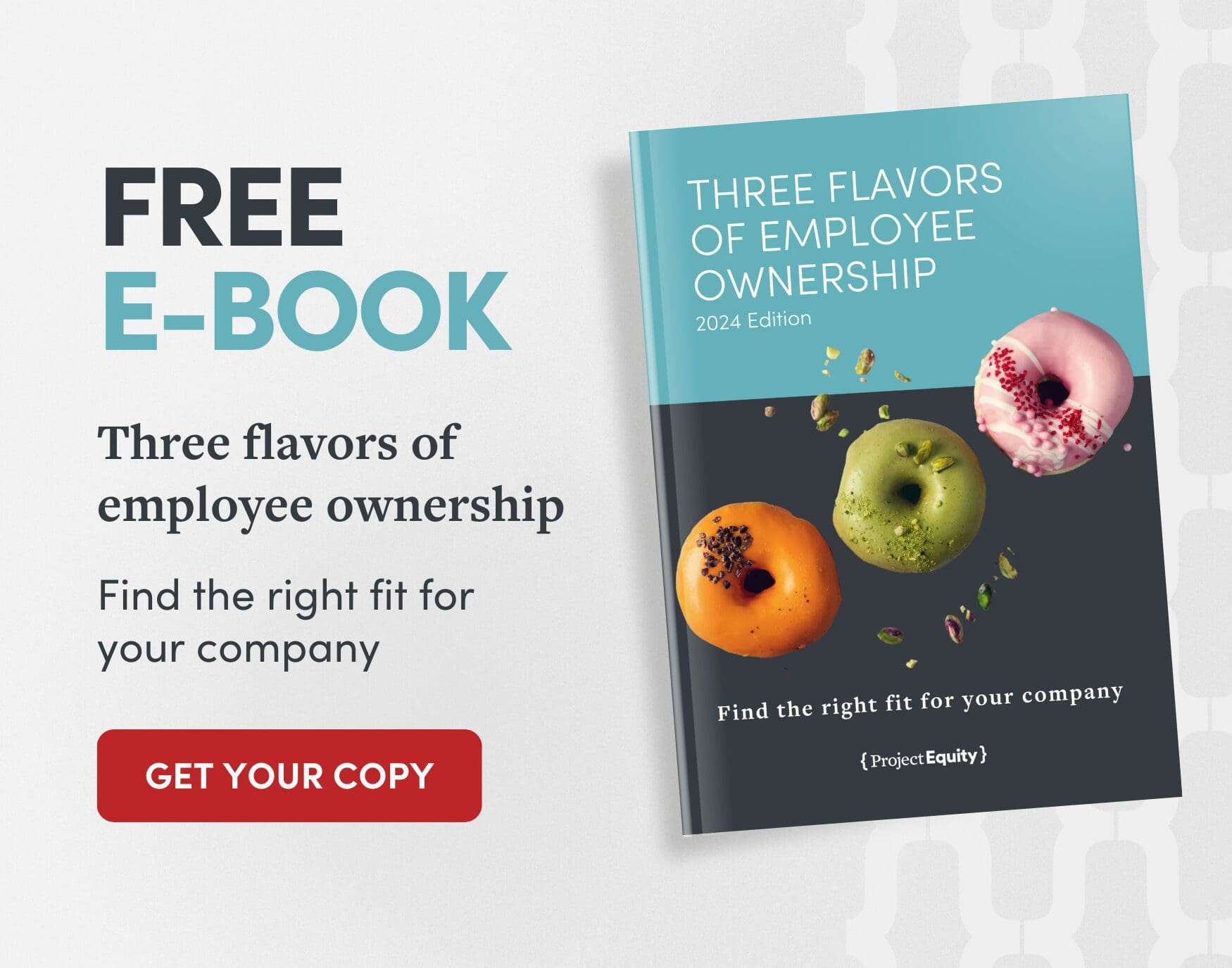Advisors for Change boosts business by giving workers a stake in the future
The financial services company deeply engaged its employees and grew its revenue by transitioning into a worker cooperative.
- Denver, CO
Founded in 2006, Advisors for Change (AFC) implements financial management systems that allow nonprofits to have robust accounting and financial reporting.
In 2021, AFC Founder and CEO Amy McPherson began considering her exit strategy. She was drawn to employee ownership (EO) through her previous experience working at nonprofits.
“I’d never been super comfortable with the notion of owning a business as the sole owner,” Amy shared. She was used to a Board structure that serves to govern a business with shared leadership and management responsibilities. At AFC, she always instilled a collaborative leadership environment.
Amy made a goal with the AFC leadership team to find some way to share ownership with her workers. She and her team were referred to Project Equity, and their EO journey began.
An end-to-end transition process
Along with some key members of her leadership team, Amy met with Project Equity’s client services team, who conducted a feasibility study, including a financial analysis, management transition analysis, and assessment of wider employee interest in employee ownership. Project Equity determined that AFC would be a good fit for an employee-owned business. Then, we started the transition process, including forming a participatory transition team with a diverse group of AFC employees.
“We set an ambitious goal to convert the year after the feasibility study,” Amy explained. “With Project Equity’s help and the work of the set of employees who formed our transition team, we really accomplished an enormous amount.”
Finally, after the transition was complete, AFC’s team enrolled in our Thrive program, a two-year post-transition program that ensures systems like training, leadership, and management are in place to support a thriving ownership culture.
“I was really grateful for the support of Project Equity,” Amy said.
“I hate to say the word ‘easy,’ but it truly did feel like an easy process because of the amount of guidance and wisdom Project Equity so freely offered at every meeting,” said AFC Senior Software Solutions Advisor Krystal Thompson, who’s also vice president of their new Board of Directors. “We never felt like we had to worry or think about anything, because we knew we could always just ask, and we were able to trust the information that was given to us.”
AFC thrives post-EO transition
“Now that we’re employee-owned, I see AFC growing deeper in essence,” Krystal stated. She explained that she saw a change in how her colleagues show up for each other in a company where they now get more of an opportunity to see the insides of the decision making and the future of the business.
“I think that’s only helping people have a better understanding of how they can be beneficial,” Krystal explained. “And when you feel like you’re of value, you show up in that space. And I really see that in my day-to-day life, people are showing up more intentionally each day, knowing that we have a different hat to put on when we come to work. We have our day-to-day hat, but now we have a little one on top—that of being an employee-owner.”
“People are being more collaborative,” she continued. “They’re more involved in making different committees and having opportunities to cooperate and network and learn from each other even more because we’re really investing in our internal controls and in our leadership, and that strength and leadership will only make our business grow.”
The monetary benefits of being employee-owned
Krystal explained that they’ve seen an uptick in referrals—their main source of new business—since transitioning to a coop.
“Being a cooperative really speaks to a lot of the organizations we work with and has given us a competitive advantage,” Amy stated. “The clients we work with are often very attracted to this business model as opposed to the more traditional business model. That’s made a difference.”
This has contributed to their profitability. “I’m happy to say that our forecast, as of the middle of the year, is completely on track, and is expected to exceed our first-year plan,” she said. “Our revenue is dramatically up without adding more capacity by hiring more employees—it’s up because people are invested and engaged.”
This is because AFC’s employees are now experiencing the benefits of having an ownership culture.
“We’ve been focused this year on efficiency,” Amy said. “It’s people working hard to find ways to be more efficient because they understand the impact on the bottom line, and how that helps all of us.”
AFC looks forward to continuing to reap the many advantages of being a coop and continuing to flourish in the years to come.
Ownership story details
Transitioned
2025
Employees
19
Industry
Type of EO
Topic


